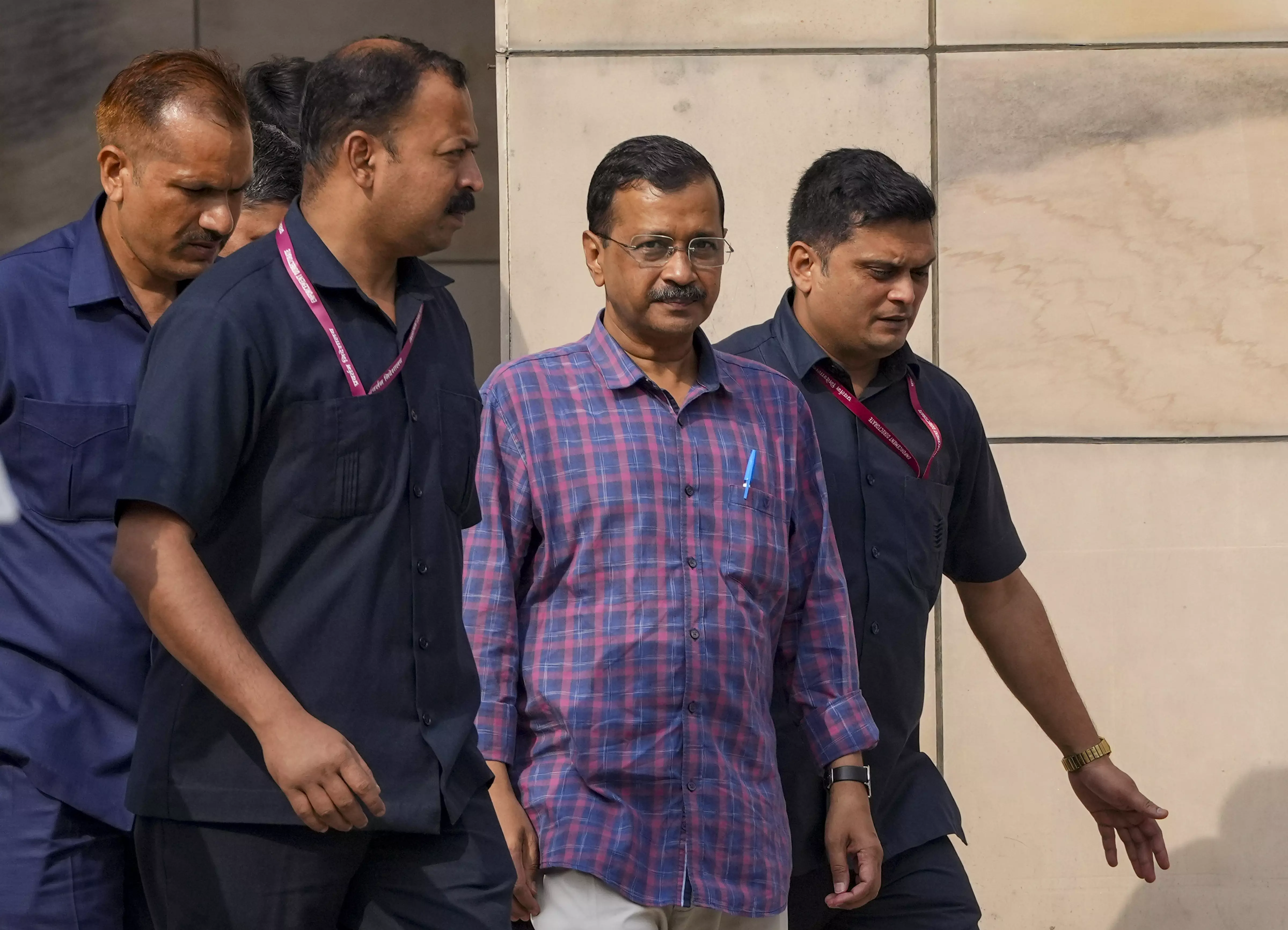
Delhi excise policy case: Kejriwal remanded in 15-day judicial custody
Additional Solicitor General SV Raju, appearing for the ED, said the agency may require Kejriwal’s further custody at a later date

Delhi’s Rouse Avenue Court on Monday (April 1) sent Chief Minister Arvind Kejriwal to judicial custody till April 15 after the Enforcement Directorate (ED) did not ask for an extension of his custody.
Kejriwal was produced in the court of Special Judge Kaveri Baweja after his ED custody came to an end. He was arrested on March 21 in connection with the alleged Delhi excise policy scam and was in ED remand since then.
“Totally uncooperative”
The ED had sought 15-day judicial custody of Kejriwal, saying he was “totally uncooperative”.
Additional Solicitor General SV Raju, appearing for the ED, said the agency “may require his [Kejriwal’s] further custody at a later date”.
Special CBI judge Kaveri Baweja of the Rouse Avenue Courts then sent Kejriwal to judicial custody.
“Not good for country”
While being brought to the court, the AAP convener said, “What the PM [Narendra Modi] is doing [referring to his arrest] is not good for the country.”
AAP ministers Atishi, Saurabh Bhardwaj, and Kejriwal’s wife Sunita Kejriwal were present in court.
In its remand application, the probe agency has accused the AAP leader of “being involved in the entire conspiracy of Delhi liquor scam, in drafting and implementation of the policy, for favouring and benefiting the quid pro receiving kickbacks and eventually using part of proceeds of crime generated out of the scheduled offence in the election campaign for Goa Assembly elections”.
After Kejriwal’s arrest on March 21, Special Judge Baweja had remanded him in ED custody till March 28. Following that, the court had allowed the ED’s plea requesting extension of his custodial interrogation by four days till April 1.
(With agency inputs)

